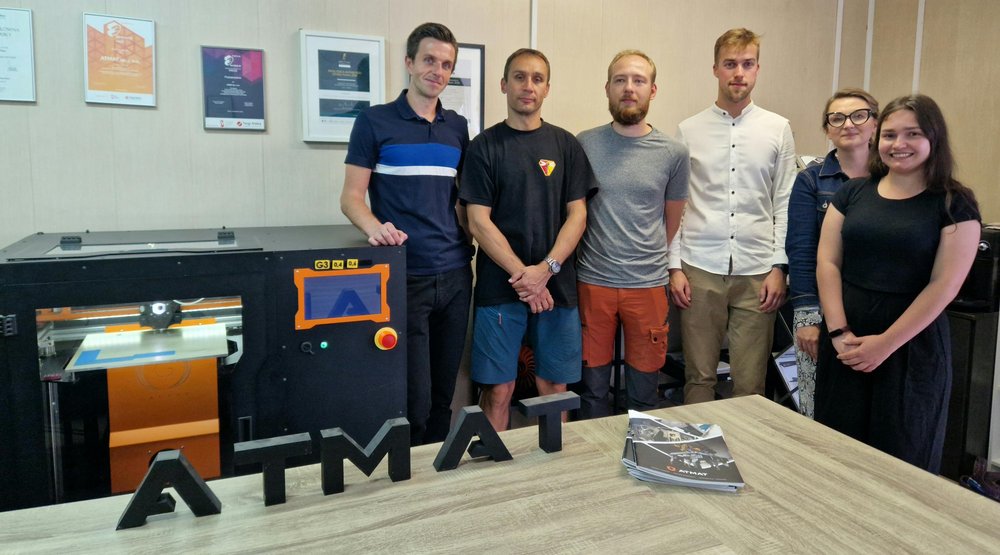Bone implants straight from a 3D printer
3D printers are used in construction idustry, design, daily used items production and medicine. Medicinal products that are intended to have contact with human tissues have to be starile in terms of microbiological purity. ATMAT company by implementing the project "Development of innovative solutions for constructing multifunctional devices for simple prototypes and low-volume production in an automated and maintenance-free manner" designed and produced 3D printers ready to fabricate ready-to-use sterile composites.
Are the printed implants sterile? The task of microbiologists from the University of Lodz
The research initiated by ATMAT (Mateusz Dyląg) aimed at evaluating microbiological purity of 3D printers created by the company and implants manufactured using this device. The scientists followed the protocol of ISO 11737-1 standard guidelines and the so-called methods of classical microbiology. The experimental work required numerous consultations, as well as a visit to the company to collect and secure samples.
Conducting research and establishing cooperation with ATMAT was a challenge for me, but above all, it was a chance to use the knowledge acquired during my studies
– comments Agnieszka Domańska (one of the students involved in the project).
About the project
The project is implemented as part of the Science Hub UŁ. This university-wide cooperation platform aims at supporting the academic community of the University of Lodz in the implementation of scientific projects in cooperation with the environment.
Project title: Assessment of the microbiological purity of the process of producing 3D prints for biomedical applications by a multifunctional device for rapid prototyping of bone implants
Supervisor: Dr Marcin Włodarczyk, Department of Immunology and Infection Biology
Students: Mateusz Kosiński, Agnieszka Domańska, Microbiology
Partner: ATMAT company
Project description: One of the most significant shortcomings of 3D biomedical printers, which are currently offered on the market, is the lack of sterility conditions while producing bioprints for medical purposes, which results in the need to sterilise the manufactured solutions. The objective of the project is to address this problem and to test bioprinters and bioprints in terms of microbiological purity. The implementation of the work will provide information on whether the company's assumptions regarding maintaining aseptic conditions of the production process and the solution itself (bioprints) meet the microbiological safety criteria. They will allow the production process to be improved or confirm the possibility of moving to the device certification stage.
Material: Project team
Edit: Science Hub UŁ

